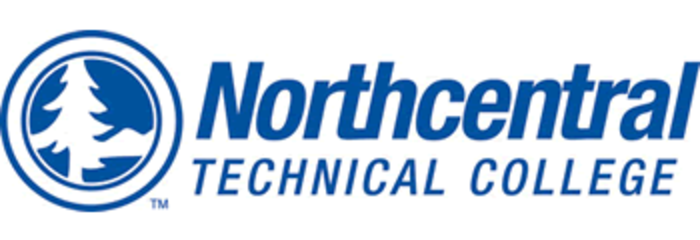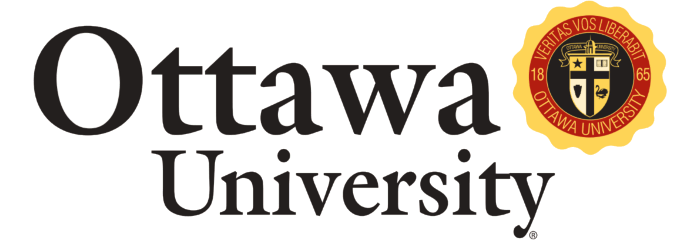2025 Best Online Substance Abuse Counseling Degrees in Wisconsin
Online substance abuse counseling degrees in Wisconsin provide a comprehensive education tailored for individuals seeking to combat addiction through therapeutic practices. These programs are at the associate and master's levels, offering you the flexibility to balance professional or personal commitments while you learn about addiction theory, intervention strategies, and ethical practices.
Key Takeaways:
- Northcentral Technical College stands out by having a large online presence, with over 1,800 fully online students enrolled.
- Ottawa University - Milwaukee has the lowest student-to-faculty ratio at 2:1, so it's a good place to get plenty of personalized attention. It hosts an online Master of Science in Addiction Counseling.
Our ranking methodology for identifying the best online degrees by state emphasizes several key criteria. Institutions included must have a primary campus location in the relevant state and offer a fully online degree in the specified subject area.
List Of Accredited Online Substance Abuse Counseling Schools
| School | Online Enrollment | Annual Tuition |
|---|---|---|
| Northcentral Technical College | N/A | |
| Ottawa University - Milwaukee | 78 | $13,002 |
2025 Best Online Substance Abuse Counseling Degrees in Wisconsin
- Online Enrollment: 1,852 enrolled
- Annual Tuition: N/A
- Location: Wausau
Online degree:
Why we like them: NTC earned its place on our list due to its online enrollment figures, which number at almost 2,000 fully online students. The online substance use disorder counseling associate degree at NTC offers a 65-credit program designed to equip you with skills in counseling, diagnosis, treatment planning, and crisis management. The program offers a mix of classroom instruction, laboratory practice, and internships across diverse settings such as clinics, hospitals, and community facilities. On completion, you're eligible for licensure as a substance abuse counselor-in-training in Wisconsin. The program details multiple career pathways in the human services.
- Online Enrollment: 78 enrolled
- Annual Tuition: $13,002
- Location: Brookfield
Online degree:
Why we like them: OU-M offers a graduate-level education in the field of substance abuse with its online MS in Addiction Counseling. This master's program provides a curriculum designed to prepare you for various careers in addiction counseling and meets licensure requirements in many states. It's a fully online degree program that encompasses 36 credit hours, focusing on courses such as Addictions Foundations, Law and Ethics in Counseling, and Co-Occurring Disorders. Practicum opportunities are essential, offering hands-on experience.
Overview of Substance Use Counseling Degrees in Wisconsin
In a state-by-state comparison of drug use and related metrics, the state of Wisconsin is in a fairly good position. WalletHub's recent study shows that the Badger State weighs in at
However, regional authorities note that methamphetamines, heroin, and fentanyl-laced opioids still pose a major threat to residents, especially where there are fewer resources for people struggling with substance use disorders. Lawmakers, public health advocates, and others are calling for more funding and more programs to help address this crisis. Future initiatives must include an increase in the number of trained substance abuse counselors who are licensed to work in Wisconsin.
In light of Wisconsin's ongoing battle against substance use, earning an online degree in substance use counseling can directly contribute to addressing these pressing challenges. Graduates of these programs are equipped with the skills needed to support individuals struggling with addiction and collaborate on community-level prevention. Pursuing a degree in this field offers the opportunity to make a meaningful impact in areas hardest hit by the crisis, particularly rural regions with limited access to care.
FAQs About Substance Use Counseling Degrees in Wisconsin
What Can You Do With a Substance Use Counselor Degree in Wisconsin?
Whether you've earned a traditional or online substance abuse counseling degree, you can follow several careers in addiction counseling in the state of Wisconsin.
Naturally, you can become a substance use counselor who works directly with clients in one-on-one or group counseling situations. Technically, you don't need a degree to obtain licensure, but you will need extensive college education, so you will probably want to earn at least a bachelor's degree, if not a master's degree in substance use counseling.
According to the Bureau of Labor Statistics (), the approximately 8,060 counselors working in substance use make a mean salary of $66,230. Other options include working for a government agency or nonprofit organization, such as a prevention program or treatment center. Specifically, you could work as a community service worker, health education specialist, or fundraiser.
How Do I Become a Substance Use Counselor in Wisconsin?
In Wisconsin, substance abuse counselors obtain their license to practice through the Department of Safety and Professional Services (). In this state, there is only one type of substance abuse counseling certification.
Becoming a substance use counselor in Wisconsin is a three-step process:
- First, you must complete 360 hours of college education on addiction counseling and substance abuse disorder, which translates to about 24 courses.
- Second, you must pass two exams — the , sponsored by the Association for Addiction Professionals (NAADAC), and the Wisconsin Statutes and Administrative Code Exam.
- Finally, you must complete 3,000 hours of relevant work experience. Of these, at least 500 hours must be devoted to providing one-on-one substance use counseling, and an additional 500 hours may be devoted to any type of substance use counseling.
As part of your college coursework, you may want to pursue an advanced degree in behavioral science or clinical counseling.
To continue providing in-person or online substance abuse counseling in Wisconsin, you must renew your certification every other year. To qualify, you must complete 30 hours of continuing education.
Does Wisconsin Have Reciprocity for Substance Use Counselors?
Wisconsin grants reciprocity to a limited number of licensed substance abuse counselors from other states. If you are currently certified in California, Minnesota, Washington, Colorado, or North Carolina, you may be able to transfer your addiction counseling credential to this state.
How Long Does It Take to Become A Substance Abuse Counselor in Wisconsin?
The number of years it takes to become a substance abuse counselor in Wisconsin varies depending on how quickly you can complete your education and accumulate a sufficient amount of work experience in the field. Given that you need to complete 24 college courses in substance abuse counseling, you are likely to earn a bachelor's degree and probably a master's degree.
This first step alone may take six or seven years if you study full time. You also need the equivalent of about three years of work experience, but some of this can be accomplished while earning your degrees.


